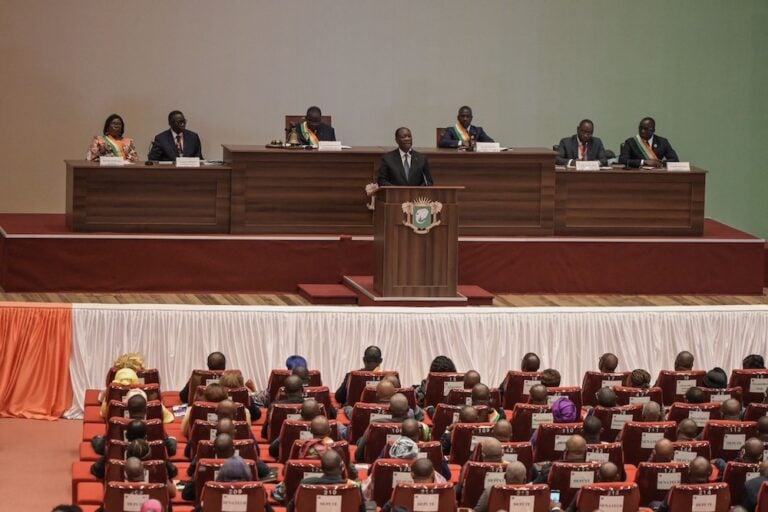(RSF/IFEX) – The Ivoirian government has tightened its grip on the national radio and television station Radiodiffusion télévision ivoirienne (RTI), following the announcement by Interim Communications Minister Hubert Oulaye, on 10 June 2004, of a series of new measures aimed at bringing the station’s news coverage in line with “government interests.” “The authorities will now […]
(RSF/IFEX) – The Ivoirian government has tightened its grip on the national radio and television station Radiodiffusion télévision ivoirienne (RTI), following the announcement by Interim Communications Minister Hubert Oulaye, on 10 June 2004, of a series of new measures aimed at bringing the station’s news coverage in line with “government interests.”
“The authorities will now be able to exert complete control over RTI’s news. Clearly, this manoeuvre is intended to censor items which could be damaging to the government,” said RSF.
“The role of RTI is to meet the population’s information needs and provide a balanced perspective of the entire political spectrum, not to serve as a mouthpiece for one party or another. We urge the Ivoirian authorities to reconsider these measures, which effectively amount to censorship,” added the organisation.
Oulaye, who recently replaced Patriotic Movement of Côte d’Ivoire (Mouvement patriotique de la Côte d’Ivoire, MPCI) Secretary-General Guillaume Soro as communications minister, has been highly critical of RTI and its director, Kebe Yacouba, since taking over the office. He has accused them of “supporting the rebels,” prompting journalists at the station to express fears that RTI’s independence could be threatened.
On 10 June, following an attack on government positions by isolated rebel factions at Gohitafla and Ity several days earlier, managers at RTI received a ministerial communiqué announcing that news items covering the event or any items dealing with defence and security issues would henceforth be subject to a “preview by cabinet” with a view to “protecting the interests of the state”. The press review that closed the evening news broadcast each night was also cancelled, while two journalists have been assigned to oversee programming content and inform the minister of any items that might “endanger the security interests of [the state].”


